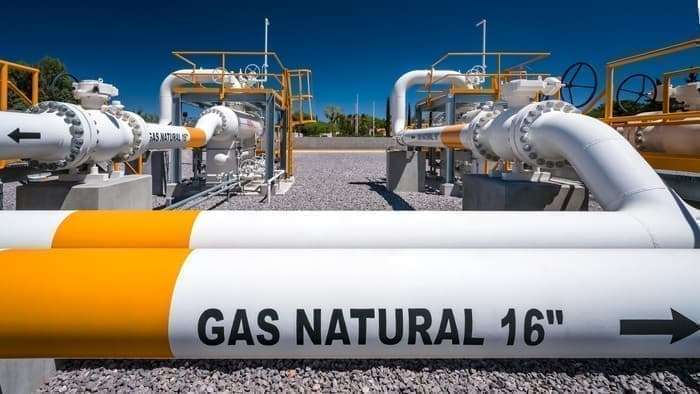Nigeria’s federal government is making strategic investments in gas infrastructure to enhance energy access and drive economic growth, according to the Group Chief Executive Officer of NNPC Ltd, Mele Kyari.
Speaking at the 2025 Nigeria International Energy Summit (NIES) in Abuja, Kyari emphasized that expanding gas infrastructure is crucial for bridging Nigeria’s energy deficits and positioning the country as a leader in Africa’s energy sector.
During his address at the summit, themed “Africa’s Energy Renaissance: Unlocking Opportunities for Global Investors,” Kyari acknowledged Nigeria’s severe energy access challenges.
According to a statement by the NNPC’s Chief Corporate Communications Officer, Olufemi Soneye, more than 70% of Nigeria’s population lacks access to clean cooking fuel, while over 50% remains without reliable electricity.
This energy gap, he noted, hampers economic growth and affects millions of livelihoods across the country.
To address these challenges, Kyari highlighted the federal government’s commitment to gas as a transitional fuel for ensuring energy security and economic transformation.
He noted that NNPC Ltd is at the forefront of delivering gas to domestic industries and power plants while simultaneously expanding the infrastructure needed to drive Nigeria’s trillion-dollar economy.
As the largest oil and gas producer in Africa, Nigeria is positioned to play a crucial role in meeting global energy demands. Kyari emphasized that the country is well-placed to unlock vast investment opportunities in the sector.
“Nigeria is poised to take a leading role in unlocking the continent’s full potential in terms of natural gas.
“The NNPC Ltd is leading the charge in delivering gas to domestic gas-based industries and power plants while building the needed infrastructure to ultimately bolster economic growth.”
Mele Kyari, Group Chief Executive Officer of NNPC Ltd
This sentiment aligns with the broader theme of this year’s Nigeria International Energy Summit, “Bridging Continents: Connecting Investors Worldwide with Africa’s Energy Potential.”
The summit has provided a platform for global investors to explore opportunities in Africa’s evolving energy landscape, particularly in the natural gas sector.
Government Reforms and Investment Opportunities

Kyari attributed the growing investor confidence in Nigeria’s oil and gas sector to key policy reforms introduced by President Bola Tinubu’s administration.
He pointed out that new fiscal incentives, enacted through an Executive Order on Oil & Gas, have led to increased Final Investment Decisions (FIDs) and attracted significant foreign investments back into the country.
“Today, investors are increasingly recognizing that investing in Nigeria, particularly in the oil and gas sector, offers not only the potential for solid returns but also a stable fiscal environment that promises long-term profitability.”
Mele Kyari, Group Chief Executive Officer of NNPC Ltd
These reforms have created an enabling environment for both local and international players in the energy sector.
Analysts suggest that Nigeria’s ability to maintain investor-friendly policies will be crucial in sustaining long-term growth and attracting even greater investment into gas infrastructure projects.
Despite government efforts to enhance gas infrastructure, Nigeria’s transition to a gas economy is hindered by various obstacles.
One of the most pressing challenges is the lack of an extensive pipeline network to transport gas efficiently across the country. Many industries and power plants remain disconnected from the gas supply chain, limiting the full potential of the resource.
Additionally, financing remains a significant concern. While investor interest is growing, large-scale infrastructure projects require substantial capital outlays.
The government will need to explore innovative financing models, including public-private partnerships (PPPs), to accelerate the development of gas projects.
Nigeria’s ambitious gas infrastructure expansion plans are a step in the right direction for improving energy access and economic growth.
With the government’s continued focus on fiscal incentives, investment-friendly policies, and infrastructural development, the country is well-positioned to lead Africa’s energy renaissance.
However, addressing existing challenges—such as financing constraints, regulatory hurdles, and pipeline infrastructure deficits—will be critical to achieving a sustainable gas-powered economy.
As Nigeria continues to implement its gas transition strategy, policymakers must adopt a pragmatic approach that balances investment incentives with long-term energy security and economic development goals.
The success of Nigeria’s energy transition will not only impact its domestic economy but will also serve as a model for other African nations striving to harness their natural gas potential for sustainable development.
READ ALSO: Ghana’s Agriculture Faces Crisis Due To Skills Gap





















